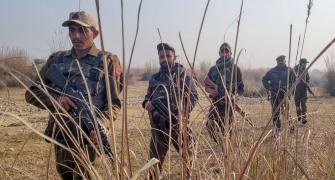He said, "Their participation contributed to the knowledge of the Canadian people as to the immense nature of the tragedy."
He thanked the Irish rescuers who travelled to Ottawa to testify before the commission.
Major suggested it should be part of the official record of the Commission how "every family member that visited Cork for the purposes of identifying bodies and other tasks were all impressed by the compassion and generosity shown to them by the Irish people."
The testimonies and statements of the family members, Major said, have "been valuable to the commission and to the country" and these have "promoted a better understanding of the tragedy experienced by the families and those who worked to recover the bodies lost in the bombing.
The commission is of course aware, that while we now have a better understanding, only these persons who lived and continue to live the tragedy and its aftermath can truly feel the impact of this act of terrorism."
The commission would now move to stage two of the inquiry that would commence from November 6.
During this first stage of the hearings, the commission primarily dealt with family members of the victims, commission spokesman Michael Tansey told rediff.com.
"Fifty witnesses appeared in person, 37 submitted written statements (which were read out by attorneys of the commission) and 4 made video presentations."
 A very moving statement was made this morning by Amarjit Bhinder, wife of ill-fated Air India Boeing 747 pilot Captain Satwinder Bhinder.
A very moving statement was made this morning by Amarjit Bhinder, wife of ill-fated Air India Boeing 747 pilot Captain Satwinder Bhinder.
She described how he decided to join Air India after working as a pilot for a few years with the Indian Air Force. He left Mumbai on June 13, 1985, and that's the last time Amarjit saw her husband, she said crying. She told of how well Irish people treated her when she went to Cork. They have two children.
"My husband promised our daughter Jasmine that he would send her to England for studies after she finished her high school but God didn't agree with his plans," she said.
Rattan Kalsi, who lost his daughter Indira, who had just finished her grade 13 and had joined the University of Guelph to study pharmacy, said it would have been her first ever visit to India. She wanted to see her grandmother, and also go to the Golden Temple in Amritsar but terrorists didn't allow her to do that.
Kalsi almost always carries Indira's photo in his shirt pocket. He showed the photo while making his statement.
Mohammad Irfan Umar Jethwa from Ankleshwar (Gujarat) made another statement. He works as a computer network engineer with a private company. He lost both his parents in the tragedy, both doctors, and both, as the luck would have it, were travelling outside India for the first time.
They were in their 40s and "had just begun enjoying life when the massacre took place." Jethwa himself was just 12 years of age that time and suddenly one day became an orphan.
"I grew up learning how mean the world was," he said. "None of the governments (Canadian or Indian) ever cared to ask what the only son of Dr and Mrs Jethwa was doing. How will he survive?"
"Wounds may disappear but scars remain," Jethwa added.
He made a strong statement with regard to the authorities having discriminated against non-Canadians as if two human beings were different. "The feeling of being left out really widens our wounds," Jethwa told Justice Major.
He suggested that all family members -- Canadians and non-Canadians -- should be treated alike at least "from now on".
"Those who were killed were humans and it should not matter if they were Canadians or non-Canadians. Humans are humans," said Jethwa.
Picture 1: Indira Kalsi, who died in the Kanishka tragedy.
Picture 2: Captain Satwinder Singh Bhinder, pilot of Air India flight 182, with his wife Amarjit Bhinder and children a few days before the Air India tragedy.
Photographs: Air India Inquiry Commission







